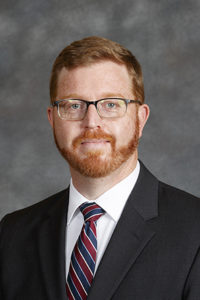Deceptive interview methods could be prohibited in juvenile cases
The use of deceptive questioning of juveniles in connection with a crime would be prohibited under a bill considered by the Judiciary Committee Jan. 19.

LB732, sponsored by Omaha Sen. John Cavanaugh, would prohibit peace officers from using deception as a means of interrogating individuals under the age of 18 in connection with an act that, if committed by an adult, would constitute a crime.
Under the bill, statements made by juveniles as a result of deceptive practices used by peace officers would not be admissible as evidence against the juvenile in any court proceedings.
Cavanaugh said juveniles may not understand the consequences of a statement made to police, or that police are not authorized to make any promises regarding the disposition of a case or leniency in exchange for testimony.
“False confessions are a serious problem in the criminal justice system and juveniles are more susceptible to making a false confession,” Cavanaugh said. “They are more likely to make a false confession when presented with false claims and evidence or a friend’s statement because their brains are still developing.”
Laurie Roberts testified in support of LB732 on behalf of The Innocence Project. False confessions are the most common contributing factor in homicide exonerations in the country, she said, and are present in 30 percent of all exonerations that have been proven through DNA.
Roberts said false confessions can result from real or perceived threats from law enforcement, and a number of other factors, including fear of harsher punishment if one doesn’t confess.
Joe Nigro testified on behalf of the Lancaster County Public Defender’s Office and the Nebraska Criminal Defense Attorneys Association in support of the bill. He said a juvenile judge once told him that it “poisons” a child when an officer lies to them.
“They won’t trust their attorney, the judge, the probation officers – and that’s true whether the child is charged in juvenile or adult court,” Nigro said. “It’s a crime to lie to law enforcement, so why should police be able to lie to children?”
Taylor Givens-Dunn also testified in support of LB732 on behalf of Voices for Children in Nebraska, saying national research demonstrates that children are substantially more likely to falsely confess to crimes they did not commit.
“Studies of exonerations have found that about 13 percent of adult exonerations involved false confession while 43 percent of juvenile cases [involved false confession],” Givens-Dunn said. “The younger the child, the more likely the false confession.”
In opposition to the bill was Jim Maguire, who testified on behalf of the Omaha Police Officer’s Association and the Nebraska Fraternal Order of Police. He said that if deceptive methods are used during an interrogation, it’s typically to observe body language and to gauge a suspect’s response.
“We are not in the business of obtaining false confessions,” Maguire said. “We don’t use deceptive tactics in every interview. All we want to do is find out the truth.”
Captain Tracy Scherer also spoke in opposition to the bill on behalf of the Omaha Police Department. She said the Supreme Court consistently has upheld the use of deception during suspect interviews and does not delineate between adults and juveniles.
“This bill narrows the scope of police interviews so narrowly that interviews would almost become obsolete,” Scherer said. “Additionally, this bill does not provide for any exceptions regarding severity of the crime, age or experience of the juvenile.”
The committee took no immediate action on LB732.

